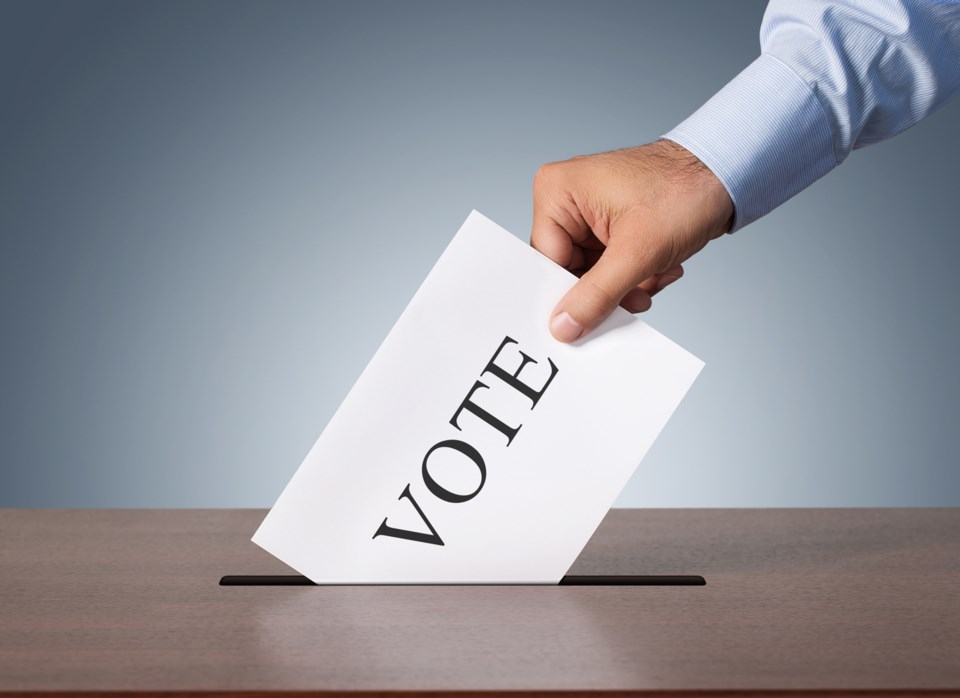The ballots for the referendum on electoral reform are just starting to arrive in everyone’s home, and already I’m getting tired of the rhetoric and exaggerations from those on both sides of the debate.
The advocates of switching to a proportional representation model for electing governments tend to argue their view of the world will lead to a utopian paradise where nothing goes wrong and everyone gets along just swell.
And those who favor the current first-past-the-post system darkly suggest any PR system will put extremists on either the left or the right dangerously close to power.
The truth is, there are merits to both systems, and there some real disadvantages to both as well. Let’s examine some of them.
For example, it is true that FPTP tends to lead to a two- or three-party system, where a ruling party rarely gets a majority of the total popular vote. However, one party’s candidate often gets a majority of votes in the riding they are elected in (in the 2017 election, 48 MLAs received a majority win).
For some folks, this kind of result is just fine and leads, for the most part, to good government (which it has, many times in this province) because it leads to loose coalitions that don’t heed the fringe parties. However, others feel this is simply not democratic – that a total majority should rule, and that anything less is anti-democratic and leads to voter cynicism.
Critics who point to right-wing populists like Ontario Doug Ford being in power due to a FPTP system conveniently forget that a whole bunch of NDP premiers – Dave Barrett, Mike Harcourt, Glen Clark, John Horgan, Allan Blakeney, Ed Schreyer etc. – benefited from the exact same system.
One of the presumed attractions of moving to a PR system is the argument that it will increase voter turnout, particularly among young people. I suspect that would be the case – more parties would have a chance of being elected, and younger voters turned off by a two-party system may find a PR model more accessible for them.
And it is clear a PR model would more closely reflect the general popular vote when it comes to determining the make-up of legislature seats. A myth seems to have taken hold about what a B.C. legislature might look like under that system, based on an assumption that it would automatically be a left-Green alliance to form government.
But, historically, the centre-right parties generally get more votes than center-left parties during elections so it may very well be a centre-right governing coalition that will tend to flow from a PR system in this province.
A PR model would also allow some MLAs to be appointed by the party rather than being directly elected by the people. Some folks think this is a travesty because it reeks of backroom wheeling and dealing and makes politicians accountable to their party, and not the voters, while others don’t see much of a problem because the number of MLAs would still be based on the popular vote.
Now, a PR system will not cure all of our social or economic ills and it may in fact worsen them. But it is just as likely to out-perform anything resulting from a FPTP outcome.
As for so-called “extremist” parties emerging, I think there is a good chance a social conservative party could garner seats under PR and may hold the balance of power under some scenarios. The Fraser Valley could be fertile turf for such a party, and could possibly exceed the five per cent minimum vote requirement for standing in the legislature.
And I note with some concern what appears to be rising tribalism in this country as support for immigration and cultural diversity seems to be dropping. But we are a ways away from seeing that reflected in the makeup our legislature, even if we switch to a PR system. Still…..
Neither system is flawless or ideal. But do some reading up, and cast your ballot in what is assuredly a very flawed referendum process (the number of decisions on how a PR system will actually work that will be made by an NDP and Green dominated legislature committee is troubling to say the least).
Just ignore the rhetoric and exaggerations.
Keith Baldrey is chief political correspondent for Global B.C.



